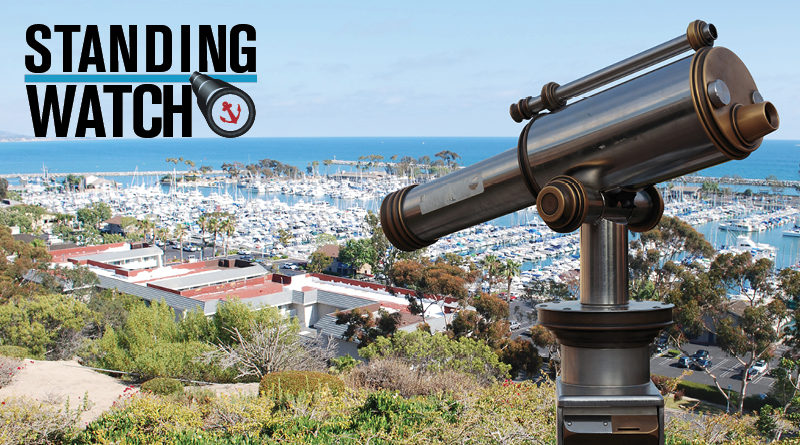Will “Recreation Not Red-Tape Act” set tone for recreational boating access?
Senate bill aims to increase outdoor opportunities on federal lands; what can state and local jurisdictions learn?
NATIONWIDE — An Oregon senator believes red tape is obstructing outdoor enthusiasts from pursuing recreational opportunities on federal lands and waters. Time will tell whether Sen. Ron Wyden’s proposal will gain enough traction to ultimately benefit boaters in Southern California and across the nation.
The Democratic senator from Oregon proposed S. 1633 – known as the “Recreation Not Red-Tape Act” – in late July. National Marine Merchants Association (NMMA) President Thomas Dammrich co-authored an Op-Ed in The Hill about 70-some days after the bill’s introduction, urging senators and representatives to support – and eventually approve – S. 1633.
Dammrich (and his co-writers) identified outdoor recreation as part of the country’s national heritage. The Op-Ed stated S. 1633, if approved and signed into law, would modernize how national public lands are managed. Such modernization, the writers argued, would ultimately “improve the outdoor recreation experience.”
“[The Recreation Not Red-Tape Act] aims to reduce barriers to outdoor recreation access, and improve public land management for Americans who enjoy recreation pursuits of all types,” Dammerich’s co-authored Op-Ed in The Hill stated. “Public lands offer many exceptional opportunities for outdoor recreation, but too often unique or exceptional settings for outdoor recreation are not formally recognized in land use planning.
“This legislation, including its system of National Recreation Areas, will identify and protect landscapes where sustainable outdoor recreation should be a priority use for jobs, local economies and quality of life,” the authors continued.
Wyden stated public access to recreational opportunities could sometimes be more of a chore than something enjoyable – hence his proposal.
“Getting outdoors often requires permits, parking passes and camping fees that are important to help maintain public lands, but too often involve confusing, complicated and lengthy processes. This bill removes barriers to outdoor recreation, making it easier for more Americans to get outdoors – enjoying its benefits and generating jobs,” Wyden stated in a published summary of S. 1633.
The federal bill proposes to expedite the permitting process for recreation guides, promote outdoor access to seniors, youth and veterans, require improved landscaping and maintenance of public lands, and direct agencies to prioritize recreational opportunities.
S. 1633, if ultimately signed into law, would only be applicable to federal lands, but there are certainly elements of the proposal recreational boaters and anglers would like to see implemented in California.
Bureaucracy is often the go-to complaint for any issue involving the Department of Fish and Wildlife or Division of Boating and Waterways.
California’s current fishing license system, for example, has long been a source of frustration for anglers up and down the state. Many anglers believe bureaucracy and politics have prevented California officials from moving forward with what they believe is common sense fishing license reform. The Recreation Not Red-Tape Act, it could be argued, might provide the framework to address the bureaucratic barriers facing fishing license reform.
The state’s boaters are also a few weeks away from being required to carry what effectively functions as a boating license. Division of Boating and Waterways staff will be rolling out the Boater Education Card during the next few years. The card is intended to foster and promote safe boating practices, to be sure, but it’s fair to ask whether the bureaucracy associated with the program’s administration might actually make it more annoying or difficult to be out on the water.
Would Wyden’s proposal open the door for California’s boaters and anglers to demand greater efficiency in its many boating- and fishing-themed initiatives and policies?
The questions above – and certainly many more – won’t be answered immediately, but Dammrich and his Op-Ed co-authors certainly believe S. 1633 is a step in the right direction.
“The Recreation Not Red-Tape Act offers commonsense solutions that will unite — rather than divide — a growing population of outdoor enthusiasts, and ensure access to sustainable recreation experiences for generations to come,” the co-authored Op-Ed in The Hill stated.


